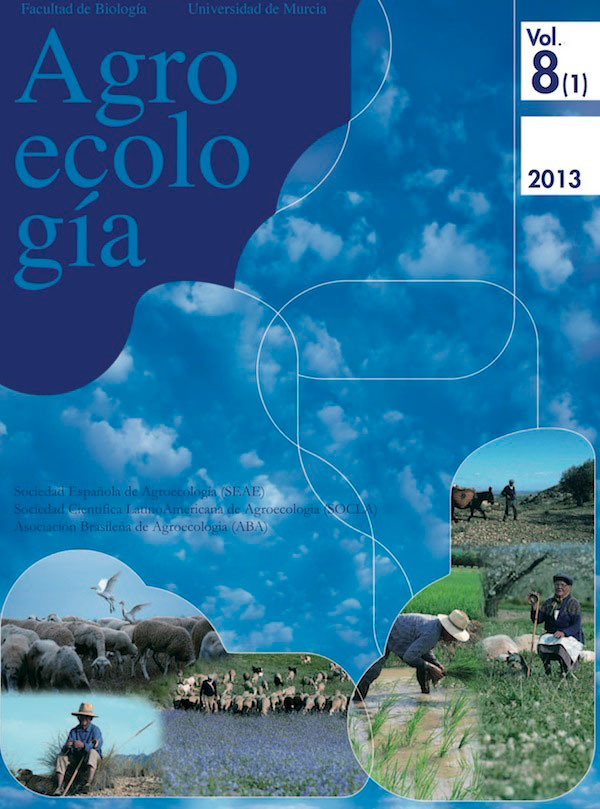Socio-ecologic aspects that explain the resilience to climate change in agricultural systems of La Palma municipality, Pinar del Río, Cuba
Abstract
Pinar del Río’s agricultural systems exhibit a high diversity and heterogeneity, due to its ecological characteristics and its own socio-cultural identity. Frequent hurricanes, prolonged drought, as well as socio-political aspects, make some of the food production systems highly vulnerable. There is an urgent need to identify adaptation strategies and responses to such events and setbacks that provoke unsustainability. This study aimed at the identification of innovative agroecological practices that confer resilience to agricultural systems in facing both hurricanes and droughts. A group of farms was selected and identified according to predefined criteria. Interviews and structured surveys were conducted in each farm as well as participative workshops were organized including all local actors directly related with agriculture (farmers, university professors, students, agriculturalists, government agents) and community inhabitants. Resistance and recovery practices used by the community to face drought and hurricanes were gleaned, a Venn diagram was utilized to understand their implementation capacity at the local level. Among the practices used to enhance resiliency in farms can be mentioned: reforestation, increase of functional biodiversity, artisanal food conservation, local germplasm banks, soil conservation and improvement, access to local markets and minimal dependence of synthetic external products. It was found that more than 80% of the practices were located in the first level of application possibility. Forest cover increase and market access were mentioned as the more complex practices to be implemented, due to limited seed availability and woody staplings as well as economic regulations. Energetic independence was perceived as a priority strategy for both, hurricanes and droughts. Community cooperation and integration appeared as a conductive thread of execution and dissemination of innovative agroecological practices, as well as, intra-community social assistance. It can be concluded that knowledge, capacity and resources availability to confront external perturbations exists in the studied communities, despite low institutional support; complemented by a strong community cohesion which allows for the dissemination of new resilience strategies.Downloads
Las obras que se publican en esta revista están sujetas a los siguientes términos:
1. El Servicio de Publicaciones de la Universidad de Murcia (la editorial) conserva los derechos patrimoniales (copyright) de las obras publicadas, y favorece y permite la reutilización de las mismas bajo la licencia de uso indicada en el punto 2.
2. Las obras se publican en la edición electrónica de la revista bajo una licencia Creative Commons Reconocimiento-NoComercial-SinObraDerivada 3.0 España (texto legal). Se pueden copiar, usar, difundir, transmitir y exponer públicamente, siempre que: i) se cite la autoría y la fuente original de su publicación (revista, editorial y URL de la obra); ii) no se usen para fines comerciales; iii) se mencione la existencia y especificaciones de esta licencia de uso.
3. Condiciones de auto-archivo. Se permite y se anima a los autores a difundir electrónicamente las versiones pre-print (versión antes de ser evaluada) y/o post-print (versión evaluada y aceptada para su publicación) de sus obras antes de su publicación, ya que favorece su circulación y difusión más temprana y con ello un posible aumento en su citación y alcance entre la comunidad académica. Color RoMEO: verde.





